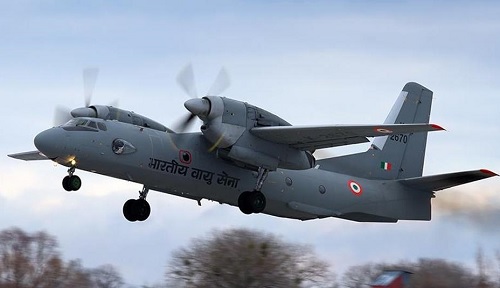N.B. Nair
New Delhi (ISJ): The announcement of Indian Air Force (IAF) to increase the flight hours of its transport planes AN-32 fuelled by 10 percent blended biodiesel, comes as a morale booster for the scientists at the state-run technology innovator – Indian Institute of Petroleum (IIP), Dehradun.
The announcement was made by Air Vice Marshal S.K. Jain, Assistant Chief of Air Force at a function in New Delhi recently.
The first AN-32 on biodiesel blended with aviation turbine fuel (ATF) flew during the Republic Day parade on 26 January 2019.
After rigorous testing, IAF formally approved the use of bio-jet fuel for use on military aircrafts in November 2021. It represented one step forward for India’s quest for alternative fuel to phase out fossil fuel. Air Vice Marshal Jain said, IAF would fly its transport aircraft for 200 hours in the coming months.
The first experiment to run an aircraft using aviation biofuel was carried out, when the budget airlines Spicejet operated its 45-minute flight from Dehradun to New Delhi in August 2018 partially powered by bio-jet fuel extracted from Jatropha plant by IIP.
Bio-jet fuel can be produced from used cooking oil, various non-edible oils like Jatropha, Karanja, Mahua, etc. Since bio-jet fuel contains ultralow sulphur, compared to conventional jet fuel, it helps reduce air pollution. Aviation sector is one of the biggest emitters of greenhouse gases, which causes global warming. IAF consumes about 6.3 lakh kilo litres of aviation fuel annually, which contributes to around 15 lakh tonnes of carbon dioxide.
“It improves engine performance in aircrafts, being cleaner than crude derived ATF,” said Dr Anjan Ray, Director of IIP, who spearheaded several innovative technologies like diesel from waste plastic, remote controlled low-cost medical oxygen plant, etc.
The technology for extraction of biofuel from Jatropha plant seeds was developed and patented by IIP, a lab under the Council of Scientific and Industrial Research (CSIR).
Dr Ray said, currently the cap for blending is 50 percent – biofuel and conventional fuel in equal quantities. He hoped, the ceiling would be eliminated gradually to run automobiles and aircrafts fully on biofuels.
India has been a late entrant into the field of biofuels. It had formulated a National Policy on Biofuels only in 2018, which sought to take forward the indicative target of achieving 20 percent blending of biofuels with fossil-based fuels by 2030.
The policy has been amended in May 2022, to increase biofuel production, advance the ethanol-blending target from 2030 to 2025-26 and allow more feedstock for production of biofuels.
The transition from ATF and biofuel will not be easy for the IAF. First and foremost, ensuring its quality will be a big challenge. “Any item used in aviation industry has to pass through very stringent quality checks. Aviation fuel is a flight critical component, the quality norms are exponentially tough, therefore, just producing bio-jet fuel will not ensure it is ‘fit-to-fly’ in aircraft,” Wing Commander Asheesh Shrivastava, a Research Fellow at the New Delhi-based Centre for Air Power Studies wrote in an article in 2018.
“Aircraft systems, equipment and consumables have to undergo exhaustive and precise tests before they can be cleared for use on any airborne platform, especially those which are manned like military/civil aircraft,” he added.
Image courtesy: Press Information Bureau


